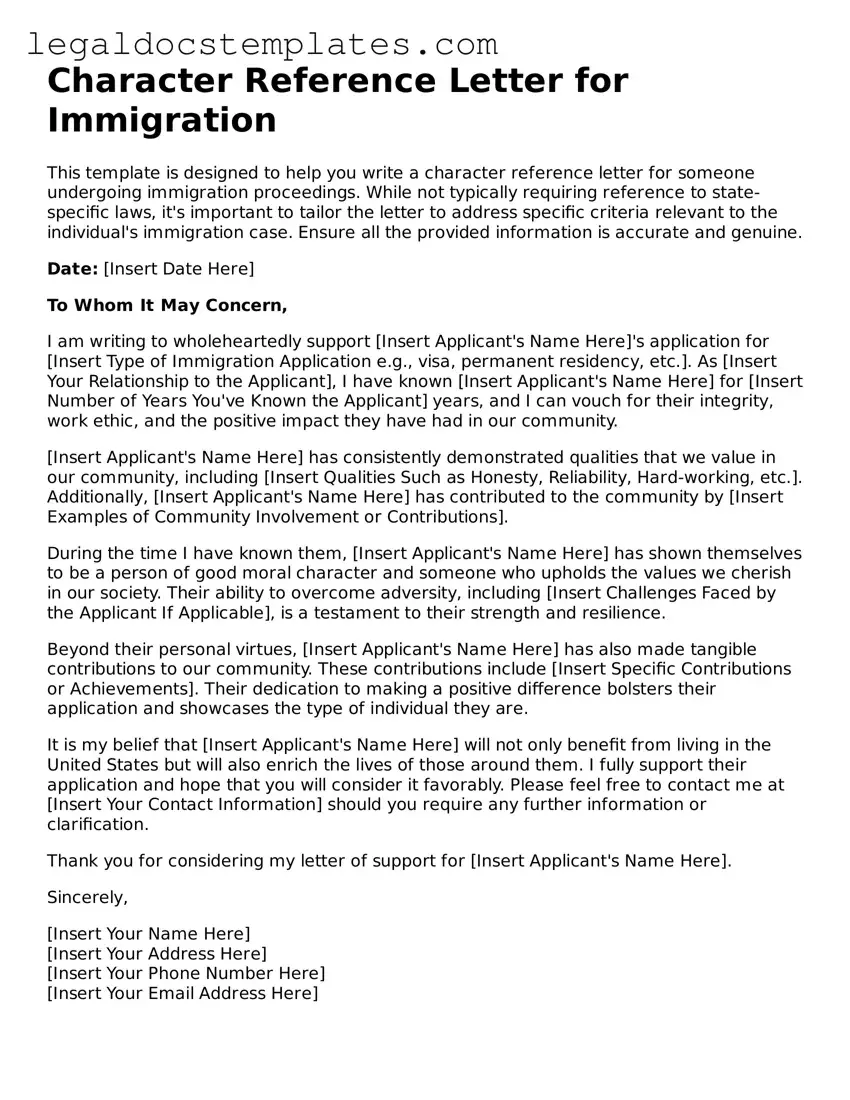Printable Character Reference Letter for Immigration Template
A Character Reference Letter for Immigration is a document that helps immigration officers understand the character and the moral standing of the applicant through the eyes of someone who knows them well. It plays a crucial role in the evaluation process, providing insights that other forms of documentation cannot. For those looking to support an immigration application, completing a character reference letter thoughtfully can significantly influence the outcome.
Ensure your input has the impact it deserves by filling out the form by clicking the button below.
Access Character Reference Letter for Immigration Now

Printable Character Reference Letter for Immigration Template
Access Character Reference Letter for Immigration Now

Access Character Reference Letter for Immigration Now
or
⇩ PDF Form
Don’t spend hours on this form
Complete Character Reference Letter for Immigration online in minutes, fully digital.